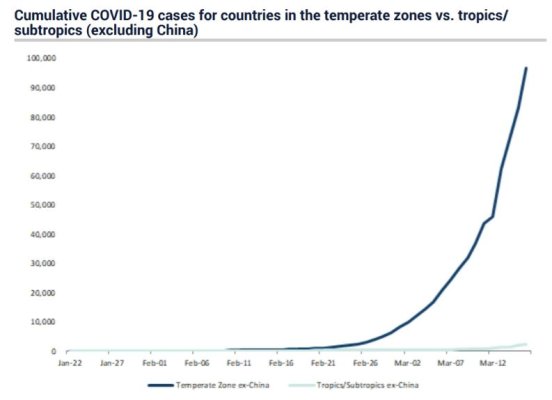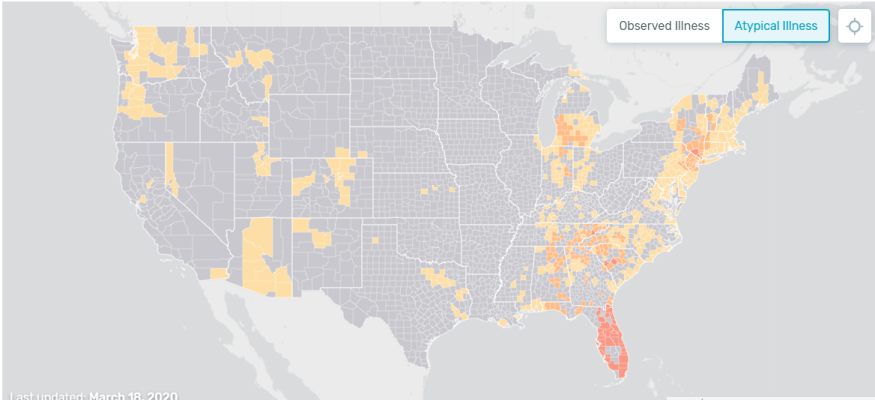REWahoo
Give me a museum and I'll fill it. (Picasso) Give
Chart shows the coronavirus spreading slowly in tropical countries
One common refrain is that many of these tropical countries are less developed, particularly in regards to their health-care systems.
“However, with the outbreak running for more than 3 months, one might expect that there should have been anecdotal data by now relating to a growing number of fatalities from a respiratory-type illness,” said Simon Powell, equity strategist at Jefferies.
A research paper came up with a similar finding. Looking at 100 Chinese cities, it found that high temperature and high relative humidity significantly reduce the transmission of COVID-19.
“This result is consistent with the fact that the high temperature and high humidity significantly reduce the transmission of influenza. It indicates that the arrival of summer and rainy season in the northern hemisphere can effectively reduce the transmission of the COVID-19,” the study found.
Scientists are not yet sold there’s a link.


